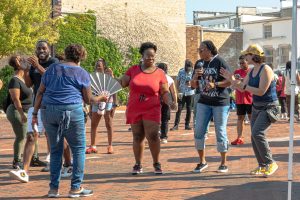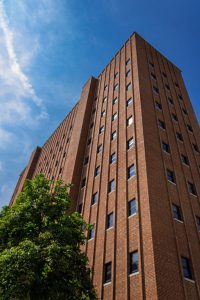Regents ignore publics’ right
October 26, 1988
The Board of Regents has a long history of showing no concern about how their actions are received by the public. However when the public has demonstrated a concern about the Regents’ many misadventures in higher education, the Regents blame the messenger and see themselves without fault.
No one knows when the Regents acquired their “who are you to question us?” attitude. Perhaps it is because the Regents are appointed by the governor, hold unpaid positions and decide how hundreds of millions of state tax dollars are spent – or rather, misspent.
Almost fifteen years ago, investigations by The Northern Star revealed tax dollars were used to pay for a Regent member’s roundtrip airfares from Arizona so he could attend monthly Regent meetings. Former Regent A.L. Knoblauch lived in Arizona and taught at the University of Arizona while maintaining a legal residence in both states.
The Regents saw nothing wrong or even questionable with this arrangement. But the Illinois auditor general and the comptroller obviously did not agree with the Regents and investigated their travel expenses. But did the Regents take this incident as a reminder that their actions are subject to public scrutiny? No, they blamed the press for bringing the indiscretions to light.
Since then the Regents have done everything they can to keep the public unaware of more questionable and controversial decisions. This includes what appears to be a history of violating the Illinois Open Meetings Act which was designed to keep public bodies’ decisions and discussions public.
In 1973, the Regents appeared to violate the law when they discussed in closed session why a panel fell from an NIU residence hall.
Recently the Regents tried to abscond its discussion of salary increases for NIU President John LaTourette and Regents Chancellor Roderick Groves in closed session, claiming salary increases had the privilege of executive session. Again, the Regents appeared to abuse the Open Meetings Act which allows such discussions only if salary increases are based on merit—which these are not.
Illinois taxpayers would have had no forewarning of the matter if it were not for sources, wishing not to be named, talking to what columnist Mike Royko has called an “aggressively independent student newspaper”. Stories about the proposed increases appeared just two days prior to the meeting, and the Regents have stated that to speak during meetings, a person must give five days notice. Obviously this move was an attempt to keep the public out of discussions in which the Regents’ actions certainly would be questioned.
And the Regents cannot stand to have their actions questioned.
The Star, long a thorn in the side of the Regents because it refuses to become a cheerleader for NIU and the Regents. The Star has been targeted by the Regents many times as the cause of their problems. Even going so far as to spend thousands of state tax dollars to pay high-priced Chicago lawyers to defend NIU in Federal District Court when Star Adviser Jerry Thompson and an NIU student filed a suit claiming violation of their First Amendment rights. The suit was filed when then President Clyde Wingfield removed Thompson from his post in apparent retaliation for investigative reporting on the waste of more than $65,000 to refurbish the president’s house.
Thompson has been reinstated, but he is paying his legal bills out of his own pocket.
It would not be surprising, looking at the Regents record, if perhaps they have sent a letter to Soviet leader Mikhail Gorbachev warning him of the danger of public knowledge.






